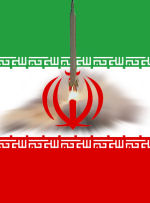 The way that U.S. sanctions protect us from Iranian nuclear weapons are indeed wondrous and diverse, as Iranians themselves recently learned when they sat down recently at their computers to don the virtual identity of sword-wielding warriors wandering through imaginary realms to defeat trolls, elves, ogres and other malevolent creatures. No World of Warcraft for you, their computers told them. No refunds either. Blizzard Activision, which makes the game, said that it shut down the game for Iranians because of the U.S sanctions on Iran.
The way that U.S. sanctions protect us from Iranian nuclear weapons are indeed wondrous and diverse, as Iranians themselves recently learned when they sat down recently at their computers to don the virtual identity of sword-wielding warriors wandering through imaginary realms to defeat trolls, elves, ogres and other malevolent creatures. No World of Warcraft for you, their computers told them. No refunds either. Blizzard Activision, which makes the game, said that it shut down the game for Iranians because of the U.S sanctions on Iran.
Of course, the first question in analyzing the applicability of U.S. sanctions to World of Warcraft in Iran is the general license in section 560.540 of the Iranian Transaction Regulations for ” [e]xportation of certain services and software incident to Internet-based communications.” This permits Iranians to access YouTube, Facebook, instant messaging and other “personal communications over the Internet.” World of Warcraft, at least as it was explained to me, permits players to communicate with one another with real-time text messaging via their avatars. Whether the faux medieval trappings and the virtual sword play transform this into something other than a personal communication over the Internet is an interesting question, but we don’t need to resolve it because the general license in section 560.540 requires that the service be available at no cost to the user. World of Warcraft requires users to pay a subscription fee.
One part of the story announcing the demise of elf battles in Iran that intrigued me was this
[Blizzard spokesperson] Hilburger didn’t immediately respond to a question asking why the company had only recently blocked Iranian players from its service.
Good question! Do you think that Blizzard filed a voluntary disclosure with OFAC?
[Hat tip to Shawn Wheatfill for bringing this story to my attention]

 Posted by
Posted by  Category:
Category: 



 Lots of news lately on Iran sanctions, so here’s a summary and some links.
Lots of news lately on Iran sanctions, so here’s a summary and some links.


